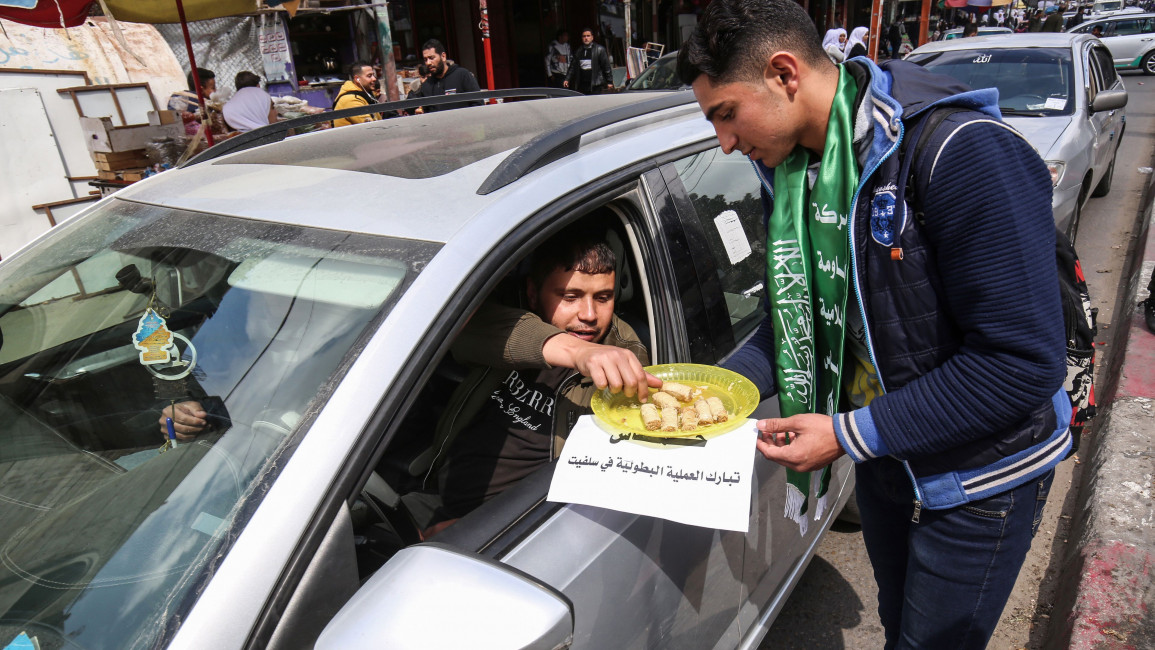Israel bars chocolate shipment 'meant for Hamas'
A 23-tonne shipment of chocolate bars headed to the besieged Gaza Strip has been seized by Israel, which claimed the delivery was intended to finance Hamas' military wing.
Israeli Tax Authority officials intercepted the shipment as it passed from Egypt into Israel at the Nitzana border crossing, before heading to the besieged enclave, local media said.
Israeli officials said the chocolate bars were being brought into the besieged enclave by importers working with two Gazan companies: Al-Mutahidun Currency Exchange and Arab Al-Sin, both of which reportedly belong to the Shamlakh family.
Israel claims sales of imports made by Al-Mutahidun and Arab al-Sin in Gaza were intended to help finance Hamas' military wing.
"Israel will continue to act to prevent Hamas from growing stronger," Defence Minister Benny Gantz said in a statement after signing a confiscation order for the chocolate bars.
Hamas is "growing its military forces instead of caring for the residents of the Strip who are struggling economically", Gantz said. "We will continue to pursue terrorism's funding no matter what form it takes."
"Business dealings with these companies are illegal, and will lead to severe penalties against those involved," an Israeli official told the Ynet news site on Monday.
Israeli officials often block vital humanitarian imports to the besieged enclave following claims that Hamas has taken over Gaza's import industry. This has been condemned by international organisations, who describe it as collective punishment.
Over a decade of siege
In 2007, Israel imposed a land, sea, and air blockade on the strip, which activists say has effectively turned the coastal enclave into an open-air prison. Basic necessities such as food, fuel, and medicines are severely restricted, while there is a massive shortage of vital building materials.
In 2014, the UN - along with four other human rights organisations - said that the Gaza Strip could end up becoming "uninhabitable" because of Israeli policies. The decade-long siege has plunged hundreds of thousands of Palestinians into poverty.
Nearly 70 percent of Gaza's population is food insecure and around 80 percent of Palestinians in the besieged enclave are reliant on international aid, according to the United Nations.
Of Gaza's two million population, 1.4 million are refugees whose ancestors were forced out of their homes in what is now Israel during the 1948 Arab-Israeli war.



